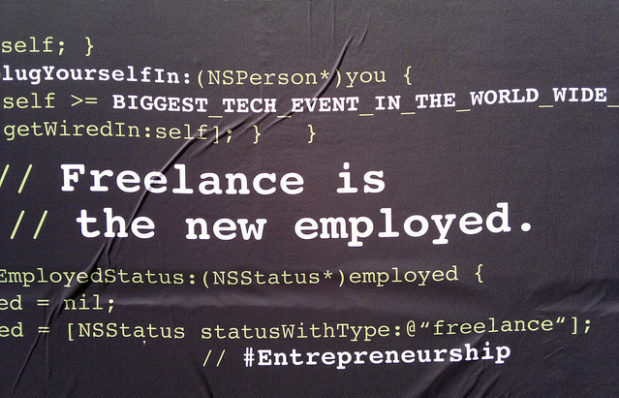8 Job Search Trends You Should Expect in 2020

The new year always brings some exciting new developments in the job market with it. Sometimes it’s tax cuts, news about internships, other times tax increases. New tech impacts the business world, and perhaps new job opportunities have arisen?
Whatever the case, job seekers have to try and stay in the know — the more information you have about the popular trends, the better you’ll be prepared for your job hunt.
So, whether you’re freshly out of high school, or newly out of a job, these are the top job search trends that you can expect as a job seeker in 2020.
Soft Skills Are Still Highly Sought After
In 2019, about 7 million jobs were unfilled! The number is very likely to be even higher in 2020 because of the rising skills gap that doesn’t seem to be anywhere near closing up.
But what kind of skills are missing? Which skills should you build up if you want to find a job? By the looks of it, it’s the soft skills will be in high demand in 2020.
Those are also known as interpersonal skills — communication, collaboration, problem-solving, creative thinking, etc.
This means that emphasizing your soft skills in your resume will bring you a step closer to finding a job.

Skills Shortage and Learning Opportunities
Because of the skills shortage, many employers are providing their workers with new learning opportunities.
42% of companies have increased their employee training budgets in the previous year, and the trend is bound to continue.
Companies are more focused on creating talent pools and searching to fill their vacant positions from within the company by offering training courses and skill-building opportunities to the current employees. They also offer internships to aspiring young adults
While this might not be great news for those without a job, it is ultimately a positive trend. Employees will be able to advance in their careers, and recruits will be more likely to stay with a company longer.
Applicant’s Experience Takes the Stage
Diplomas, certificates, and just the overall educational background will always be relevant to employers. However, job experience is what matters the most and what will matter the most in 2020.
So, it’s crucial for job seekers to fill their CV with as much information as possible about their previous experience.
Younger applicants should sign up for high school internships, volunteering, or find part-time jobs as closely related to their dream jobs as possible.
A Rise in Freelancing Careers
About 34% of the US national workforce currently consists of freelancers. While just a few years ago, this was seen as a negative trend, many are embracing it, and we’re bound to see even more freelancers in 2020.
Freelancing jobs aren’t traditionally considered to be stable or to be offering many benefits. Still, many companies are starting to appreciate the so-called “portfolio careers” and are trying to fill their vacant positions with freelancers.

Perhaps you don’t consider freelancing as a valid career path for yourself, but this is an excellent opportunity for networking and building relationships with many employers, and this can bring many benefits.
The Growing Remote Workforce Will Create More Opportunities
Remote working can be beneficial to both employees and employers, so the number of remote positions is currently on the rise.
Over 4.3 million people in the USA currently work remotely for at least half the time, and more fully remote positions are being opened every day.
For job seekers, this means that they can expand the job search to different cities and even different countries.
You’re no longer limited by simple geography, and can rather easily find positions you’re qualified for wherever they are.
Optimize for AI
AI has entered the HR recruitment process and is currently taking over its initial stages. AI is primarily used for pre-screening job applicants and going through all the CVs.
This is both good news and bad news for job seekers.
On the one hand — this will ensure that those applicants with the right skills and experience don’t get overlooked by accident.
It also removes any biases from the recruitment process, so each applicant has a fair opportunity of getting the job.
On the other hand, this requires job applicants to be very specific and to the point in their resumes. They cannot hide a gap in their experience by using a particular resume format or by explaining it.
Fingers Crossed for More Employee Benefits
The low unemployment rates and the high skills gap can prove to be very beneficial to all the job seekers out there.
The competition is fierce. Studies show that 90% of the S&P 100 are recruiting for the same 37 in-demand jobs. This means that companies are trying to be as appealing to job seekers as possible.
To attract and retain talent, companies in 2020 will offer valuable employee benefits in addition to health insurance, dental insurance, and the likes. You can expect offers for:
- Transportation reimbursement
- Student debt repayment
- Paid medical leave
- Family planning
- Even pet insurance
Companies are doing all they can to attract candidates, and this can be very lucrative for job seekers.

Social Recruiting Is Becoming More Commonplace
Since most businesses have their own Facebook, Twitter, Instagram, Snapchat accounts, it’s no wonder that they’re using their social media for attracting top talent.
This is commonly known as “social recruiting,” and it’s a growing trend that you should pay attention to.
If you want to find a well-paying job, you should follow the companies that are of interest to you across different social media platforms.
Many will post job openings on social media, and this will be a perfect opportunity for you to find a career that suits you.
The Bottom Line
The turn of the decade is set to be very interesting for the job market. Many new opportunities and internships are expected to arise for job seekers. And many companies are finding innovative ways to attract job candidates.
These are just some of the trends that we’re bound to see in 2020. Stay informed if you want to find a job that suits you well.

